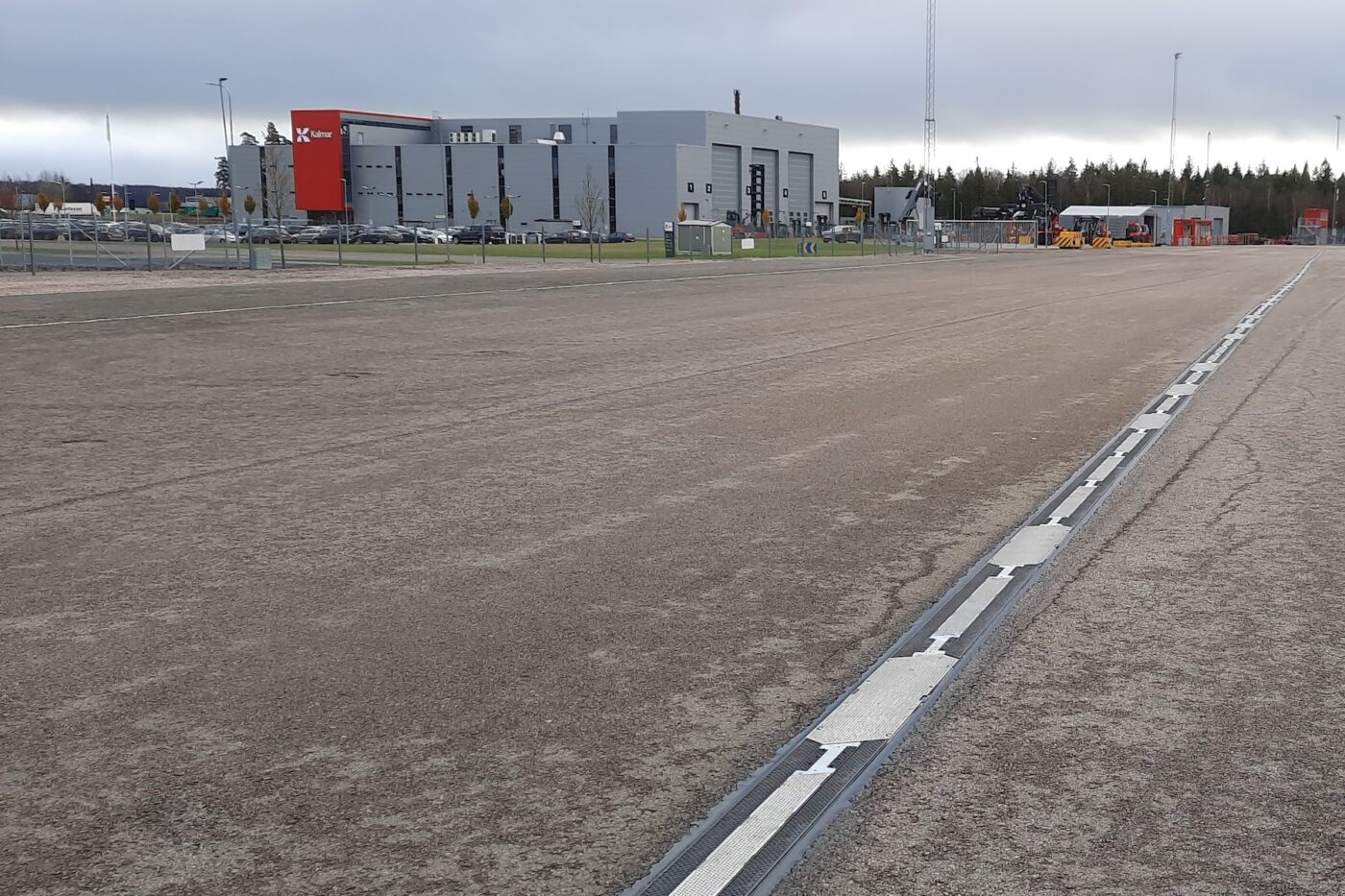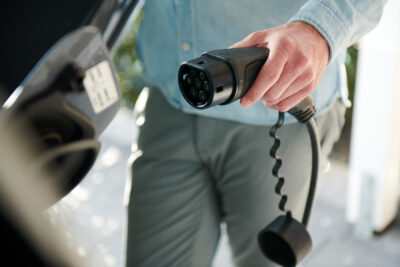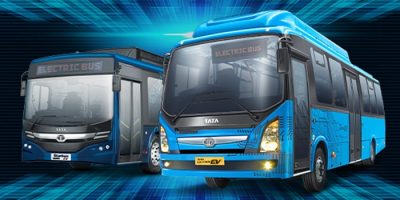Kalmar tests conductive charging during operation with Elonroad
To this end, a 200-metre-long electric road is to be built in which rails for charging electric vehicles are installed. The electric road, which is to be built at the Kalmar Innovation Centre in Ljungby, Sweden, will enable the dynamic charging of electric vehicles both while driving and when stationary by means of rails in the floor. If the solution works well with Kalmar’s industrial trucks, it would significantly reduce the need for battery storage on board the vehicles – an earlier Elonroad project concluded that batteries could be 50 to 80 per cent smaller.
Similar to the Austrian company Easelink, Elonroad’s technology is based on conductive charging, but not only when the vehicle is stationary, but also when it is travelling. This means that the charging process is not wireless, as is the case with Electreon’s inductive solution, for example. Instead, a type of current collector on the floor plate of the vehicle must connect to the charging rail. According to the technical specifications on Elonroad’s website, the company is currently working with 9.2 metre long power rails that can be connected in series. The power rails support charging processes of up to 300 kW per vehicle.
According to Elonroad, this conductive charging method is superior to inductive charging technology because it is said to achieve an efficiency of 97 per cent. In comparison, up to 30 per cent of the energy is lost with induction, as the magnetic fields can heat up the environment, according to the company. Induction systems also have energy transfer rates of more than 80 to 100 kW. According to Elonroad, conductive charging technology should also result in significantly lower road construction costs than inductive solutions.
According to Per-Erik Johansson, Technology Manager at Kalmar, the company has been working on dynamic charging solutions for electric vehicles for several years and now wants to verify the technology. He says: “The project, supported by The Swedish Energy Agency, will initially retrofit a reachstacker and a terminal tractor from Kalmar, followed by a verification phase to test charging efficiency and uptime improvements on the electric road. In the second stage of the project, the technology will be tested in a real-life port environment with pilot customers.” His colleague Tommi Pettersson, SVP Strategy, Sustainability and Technology at Kalmar, wants to work with Elonroad to “be the first on the market to demonstrate a charging solution of ‘unlimited onboard energy’.”
Elonroad CEO Karin Ebbinghaus added: “At the heart of this project is an innovative solution that combines Elonroad’s technology for automatic charging with Kalmar’s expertise in port and terminals, distribution centres and industrial applications. By collaborating with Kalmar, we hope to contribute to solutions that are not only better for the environment, but also improve efficiency and reduce costs worldwide. This is the future of industrial infrastructure – smart, sustainable and economically viable.”
Elonroad has already gained some interesting partners for its technology: Polish bus manufacturer Solaris, for example, has already been involved in Elonroad’s Evolution Road pilot project since 2019. Finnish car-sharing provider Elmo is currently testing Elonroad’s charging rails, albeit as a stationary charging solution. And the operator of the Øresund Bridge, together with Lund University and Elonroad, wants to investigate whether it is possible to equip a lane on the bridge with the dynamic charging solution.





0 Comments